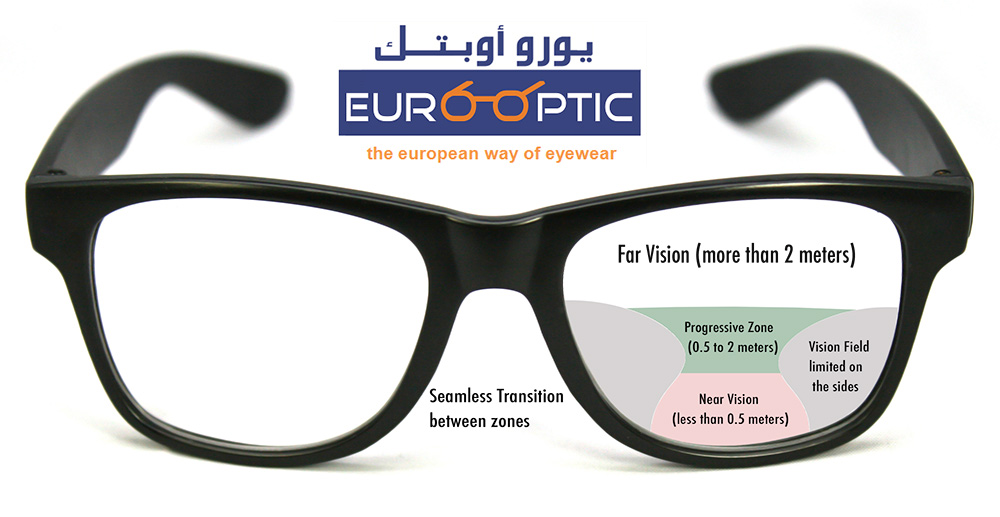Progressive lenses
Who needs and should wear progressive lenses?
Starting at the age of 39 years the lens of the eye becomes less flexible resulting in the inability to focus on near distances.
What is a progressive lens?
A progressive lens is a combination of far vision glasses and near vision glasses with a seamless transition between the distances.
How does a progressive lens work?
The progressive lens is divided into three zones:
1. The upper zone provides a clear vision of distant views
2. The lower zone provides a clear vision of near views (reading distance)
3. The zone in between upper and lower zones is optimal for intermediate distances vision (so-called progressive zone)

What are the main advantages of progressive lenses?
– The seamless transition between the different zones / levels of vision power is much more convenient than the ‘hard’ transition in bifocal and trifocal glasses
– The user of progressive lenses only requires one pair of glasses and does not have to switch between near vision glasses and far vision glasses)
– Progressive lenses provide clear vision in all distances
– Progressive lenses are much more aesthetical than bifocal and trifocal glasses, where the different vision powers are provided by separate lenses with a ‘hard’ transition that can be clearly seen by other people
What should I know before buying progressive lenses?
– Progressive lenses are available in different quality & price categories. Euro Optic RAK offers top quality products from Rodenstock (German), Essilor (French) and Nikon (Japanese), providing the maximum level of wearing comfort and vision excellence
– There is an adaptation and familiarization process of a few hours to maximum a few days, depending on the quality of the lenses.
– The fields of view for both near and far distances are smaller than in lenses with only one vision power
– For people working in front of computer screens for several hours a day special computer progressive lenses are recommended
Where should I buy progressive lenses?
It is very crucial for progressive lenses that the eyes’ data and requirements are exactly measured and determined by a professional optometrist.
Furthermore, a certified optometrist can guarantee a quality supplier, as progressive lenses manufactured in low-wage countries with no quality control can cause more damage than do good.
In addition the adequate type and size of frame (the perfect fit over the nose), right alignment and centering as well as fitting and lab finishing of the glasses are imperative in order to a maximum wearing & vision comfort. This again can only be performed by a professional optometrist.
